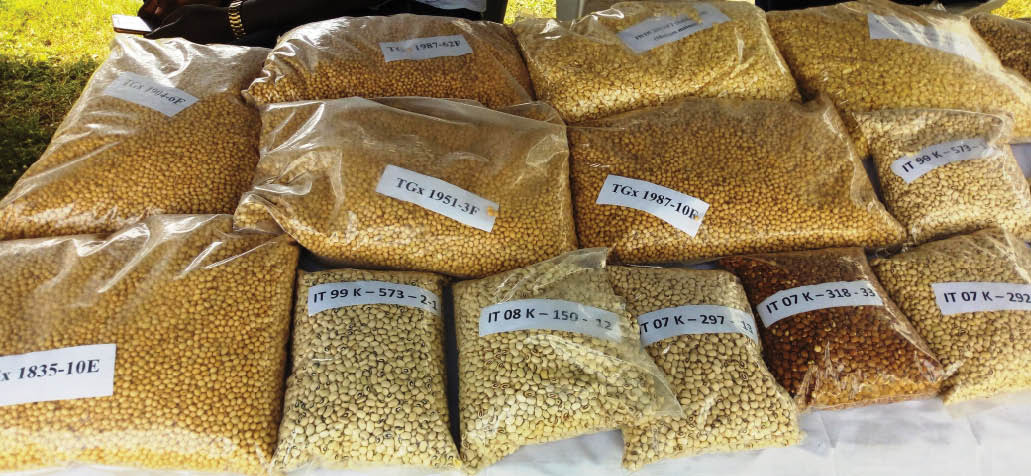I was driving out of the National Agricultural Seeds Council headquarters in Sheda, on the Abuja-Lokoja expressway when I noticed a small demonstration plot of a new cotton variety. The plot had already been harvested, but the dried sturdy plants stood erect and still retained some green leaves and looked never perturbed by insect or disease. There was still some fibre left in the massive, open bolls that seemed ready for another harvest. It was a curious sight and it took me only a closer look to know that this was a genetically engineered cotton. After an inquiry, I was told that it was a plot for ‘Bt Cotton’ trial. ‘Bt’ crops have an insect-resistant trait usually based on genes from a bacterium (Bacillus thuringiensis, or Bt as it is usually referred to). ‘Bt’ crops are proven to have generally decreased yield losses and the use of insecticides on small and large farms in comparison to normal varieties. And yes, Bt crops are genetically engineered to carry the genes of the said bacterium which makes them GMO.
The term GMO stands for ‘Genetically Modified Organism’. This general definition refers to all organisms, and in most cases plants that have been modified using recombinant DNA techniques or genetic engineering to achieve some desired traits, like drought-tolerance and pest-resistance. I find the term GMO misleading since the genes of organisms have been changed repeatedly since the human race started farming and many crops and even animals as we know them today, are a direct result of these deliberate manipulations over the years.
- Security operatives wished us luck as we went to pay ransom – Families of ABU 9
- Life in Nigeria is perfect, pleasant in Abuja – Belgian Ambassador
Nevertheless, there is an incredible lack of understanding of this technology and its place in global politics. So many myths, and not enough understanding has embroiled the world of GMOs ever since the first commercial use began in the early 90s. For instance, there are various claims that genetically modified crops have adverse effects on human health. These are mainly false, unsubstantiated claims as many reviews have indicated that foods and food items made from genetically modified crops are as safe as foods from non-GMO origins. I looked at these and other top GMO myths especially prevalent in Nigeria.
MYTH 1: GMOs are unnatural, playing God and cause wrath on all users.
If you argue with anyone in Nigeria, this is most likely the first thing they say about GMOs. This assertion is not only untrue but illogical. The reality is that as a human race, we have been selectively breeding plants and animals for as long as we have been practicing agriculture. Basically all domesticated plant species are genetically modified. Modern science has only given us the opportunity now to replicate this process which ordinarily takes hundreds or even thousands of years. I like looking at it more as a blessing to be utilised rather than vilified or castigated to our own disadvantage.
MYTH 2: GMOs are part of an elaborate plot to cripple the Nigerian population and control the nation’s food and agricultural productivity.
This is untrue, and an insidious and harmful myth that is very popular in Nigeria. The truth is many developing nations are increasingly choosing GMOs, and of recent there are more hectares devoted to genetically modified crops in developing countries than even developed nations. This is mostly because these farmers have seen how biotech helps in lowering their costs and improving their incomes. The policy makers in those countries are also aware of this and the researchers are also involved in testing and approving the technology before adoption. Researchers have shown how GMOs have guaranteed better incomes for 18 million small-holder farming families, bringing financial stability to more than 65 million people in developing nations. In South Africa alone (which grows genetically modified maize, soybeans and cotton on over 6 million acres), $237 million was realised from GM crops in one year alone. In Nigeria, this can be game changing and it is mostly the rural poor who stand to benefit the most from it.
MYTH 3: As a farmer, you cannot save or reuse GMO seeds.
Many farmers in Nigeria are already used to hybrid seeds, which have been around for some time now, and which need to be purchased each season as opposed to the common age-old practice of saving some of your harvested grains to replant as seeds. So I really find this a non-issue, mainly because majority of farmers now do purchase certified seeds and get better yield and make more money. The incredible work of the National Agricultural Seeds Council cannot be over-emphasised. I have seen data that points to the availability and usage of certified quality planting materials on the rise. In any case, some corporates sign agreements with farmers not to save or share GMO seeds they purchase from them but in many public sector projects over the world, like the Water Efficient Maize for Africa, farmers are free to save and share GMO seeds and no royalties are charged.
In conclusion, I was delighted by my discovery of Bt cotton in Nigeria at the National Agricultural Seeds Council and have since acquired and grown it with splendid results in Katsina State. I believe that for this country, and in fact the world, to attain agricultural sustainability and feed itself, no one plant breeding or agricultural system can be the only option. We will require various contributions from smallholder agriculture to commercial, from organic to biotech coupled with efficient distribution and storage systems and more. So, whereas I am not saying that GMOs are a silver bullet, I think our aversion and unwarranted fear and ignorance of them could be costly.

 Join Daily Trust WhatsApp Community For Quick Access To News and Happenings Around You.
Join Daily Trust WhatsApp Community For Quick Access To News and Happenings Around You.


